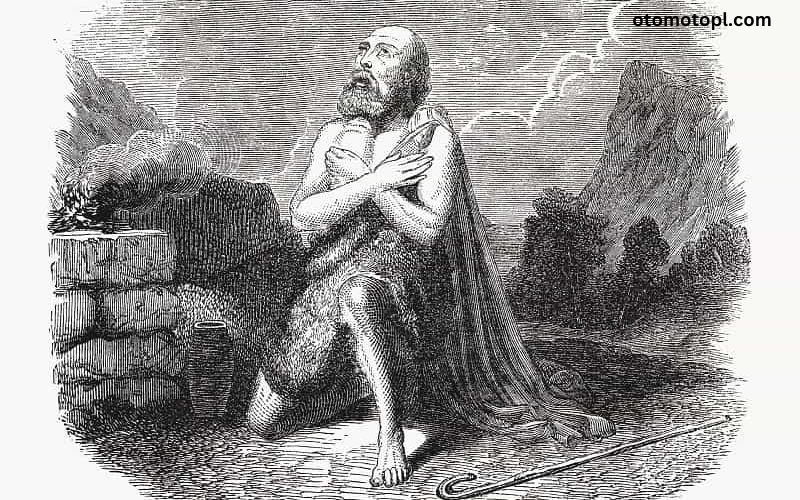For centuries, the Book of Enoch has been shrouded in mystery, sparking curiosity and intrigue among scholars and enthusiasts alike. This ancient apocryphal text, attributed to the biblical figure Enoch, son of Seth, has been the subject of much speculation and controversy. Its contents, which range from apocalyptic visions to extraterrestrial encounters, have been shrouded in secrecy, leading many to wonder if it’s more than just a myth. While some have dismissed it as a mere forgery, others have posited that it holds the secrets to understanding the very fabric of humanity’s existence. As we delve into the forbidden pages of this enigmatic text, we’ll uncover the truth behind its cryptic messages, explore the historical and cultural context in which it emerged, and unravel the mysteries that have captivated scholars for centuries. Join us on this captivating journey as we uncover the secrets hidden within the Book of Enoch.
The Mysterious Book of Enoch: An Introduction
The Book of Enoch, a mysterious and ancient text that has captivated the minds of scholars and spiritual seekers alike for centuries. Said to be written by Enoch, the great-grandfather of Noah, this book is a window into a world of ancient wisdom, mysticism, and cryptic prophecies. The Book of Enoch is a forgotten chapter in the biblical narrative, relegated to the shadows by the early Christian Church. Yet, its pages hold secrets and revelations that have the power to shake the very foundations of our understanding of the world.
As we delve into the world of the Book of Enoch, we are met with a sense of awe and wonder. The text is a masterful blend of myth, legend, and allegory, weaving together tales of fallen angels, the Nephilim, and the end of days. The language is poetic and evocative, conjuring up vivid images of a world both familiar and strange. The Book of Enoch is a portal to a realm of mystical and esoteric knowledge, waiting to be unlocked by those with the courage to venture forth.
As we begin our journey through the Book of Enoch, we are drawn into a world of mystery and intrigue. We will explore the themes of sin, redemption, and the nature of the divine. We will uncover the secrets of the watchers, the fallen angels who descended to earth and mingled with humanity. And we will examine the prophecies of the end of days, which speak of a world in chaos and destruction.
But be warned, dear reader, the Book of Enoch is not for the faint of heart. Its secrets are not for those who are afraid of the unknown, or who are unwilling to confront the mysteries of the universe. The Book of Enoch is a journey into the depths of the human soul, and it requires courage, wisdom, and an open heart. Are you ready to embark on this journey, and uncover the truth behind the Book of Enoch?
The Origins of the Book of Enoch
The Book of Enoch, a mysterious and ancient text, has long been shrouded in mystery and intrigue. Its origins, however, are steeped in controversy and debate. The earliest known fragments of the Book of Enoch date back to the 3rd century BCE, with some fragments found in the Greek and Latin languages. This has led many scholars to question the authenticity of the text, with some speculating that it was penned by a Greek or Roman writer who drew inspiration from earlier Jewish texts.
Despite the uncertainty surrounding its origins, the Book of Enoch is widely regarded as one of the most important apocalyptic texts in the ancient Jewish canon. Its influence can be seen in the works of Jewish prophets, such as Daniel and Ezra, and even in the Christian New Testament. The text itself is a masterclass in apocalyptic literature, weaving together tales of fallen angels, the corrupting influence of sin, and the impending doom of humanity.
As we delve deeper into the mysteries of the Book of Enoch, it becomes clear that understanding its origins is crucial to unlocking the secrets that lie within. Whether the text is of Jewish, Greek, or Roman origin, one thing is certain – the Book of Enoch is a window into the collective psyche of ancient civilizations, offering a glimpse into the fears, hopes, and aspirations of our ancestors.
What is the Book of Enoch?
The Book of Enoch is a mysterious and ancient text that has long been shrouded in secrecy and controversy. Written in the 3rd century BCE, this apocryphal book is a sacred scripture that has been revered by some and reviled by others. The book is named after its alleged author, Enoch, the great-grandfather of Noah, who is said to have been taken up to heaven without dying. According to the book, Enoch received revelations from God, which he recorded in a series of visions and dreams.
The Book of Enoch is a collection of stories, prayers, and prophecies that delve into the mysteries of the universe, the nature of God, and the fate of humanity. It is said to contain secrets about the fallen angels, the Nephilim, and the impending judgment of God. The text is written in a poetic and symbolic style, making it a challenging but richly rewarding read for those who venture into its depths.
Despite its importance, the Book of Enoch has been largely excluded from the biblical canon and has been considered a “forbidden” text by many Christian denominations. Nevertheless, its influence can be seen in the writings of early Christian fathers, such as Jude and Barnabas, and it has continued to be studied and revered by many spiritual seekers and esoteric scholars throughout history.
The Forbidding of the Book of Enoch
The Book of Enoch, a mysterious and enigmatic text that has captivated the imagination of scholars and theologians for centuries. Yet, despite its rich history and significance, the Book of Enoch remains shrouded in secrecy, its contents and meanings hidden behind a veil of obscurity. It is said that the Book of Enoch was once a revered and influential text, but its popularity and relevance began to wane as the centuries passed. Today, it is considered a forbidden book, its contents so controversial and inflammatory that many scholars and institutions have deemed it too dangerous to be read or studied.
The exact reasons behind the forbidding of the Book of Enoch are shrouded in mystery, but it is believed that the text’s unflinching portrayal of the fallen angels and their corrupting influence on humanity was deemed too radical and subversive for the established churches and institutions of the time. The Book of Enoch’s descriptions of the Nephilim, the giant offspring of the fallen angels and human women, were seen as a threat to the traditional teachings of the Old Testament and the authority of the established clergy. As a result, the Book of Enoch was relegated to the status of a forbidden text, its contents and meanings hidden away from the prying eyes of the curious and the unwary.
The Secret Message of the Book of Enoch
As we delve deeper into the mysterious pages of the Book of Enoch, a sense of anticipation builds, like a whispered secret waiting to be uncovered. The text, penned by a figure shrouded in mystery, holds the key to understanding the hidden truths that lie beneath its ancient words. The Secret Message of the Book of Enoch is a tantalizing enigma, a puzzle that has puzzled scholars and mystics for centuries.
As we carefully unravel the threads of this sacred text, we find ourselves transported to a world of ancient wisdom, where the boundaries between heaven and earth are blurred. The Book of Enoch is a treasure trove of symbolism, allegory, and cryptic language, designed to convey a message that has been hidden from the naked eye. But what secrets lie hidden within its pages? What ancient truths are waiting to be unearthed?
As we continue to explore the mysteries of the Book of Enoch, we begin to uncover a narrative that speaks to the very heart of human existence. The secrets contained within its pages are not just a window into the past, but a roadmap for our own journey towards enlightenment and self-discovery.
Uncovering the Truth Behind the Book of Enoch
As we delve deeper into the mysterious realm of the Book of Enoch, the veil of secrecy begins to lift, revealing a tapestry of ancient wisdom and cryptic prophecies. The truth behind this enigmatic text has long been shrouded in mystery, with many scholars and theologians dismissing it as a forgery or a myth. However, a closer examination of the Book of Enoch’s contents and historical context reveals a complex and fascinating narrative that challenges our understanding of the Bible and the world.
Within the pages of this ancient text, we find a treasure trove of apocalyptic visions, mystical encounters, and cosmic revelations that defy explanation. The Book of Enoch presents a world where angels and demons coexist, where humanity is torn between good and evil, and where the very fabric of reality is threatened by the forces of chaos. As we unravel the tangled threads of this mystical narrative, we begin to uncover the hidden truths that have been concealed for centuries.
From the cryptic descriptions of the Watchers’ descent into the world of humans to the eerie accounts of the Nephilim’s monstrous deeds, the Book of Enoch paints a vivid picture of a world on the brink of catastrophe. And yet, amidst the chaos and destruction, we find glimmers of hope and redemption, as the righteous are preserved and the wicked are punished. As we continue to uncover the truth behind the Book of Enoch, we are drawn into a world of mystery and wonder, where the boundaries between reality and myth blur, and the secrets of the universe lie hidden in plain sight.
The Historical Significance of the Book of Enoch
As we delve deeper into the mystical world of the Book of Enoch, it becomes increasingly evident that this ancient text holds a profound significance that transcends its mere literary value. The historical context in which the Book of Enoch was written is a testament to its enduring impact on the development of human thought and spirituality. Composed during a time of great turmoil and upheaval, the book’s authors, Enoch and his descendants, penned a prophetic and apocalyptic tale that would go on to influence the course of Jewish, Christian, and Islamic traditions.
The Book of Enoch’s historical significance lies not only in its contents, but also in its ability to illuminate the cultural and societal backdrop of the ancient Near East. The text provides a unique window into the lives of the people who lived during the second millennium BCE, offering insights into their beliefs, customs, and values. The book’s descriptions of the Watchers, the Nephilim, and the fallen angels not only add to our understanding of ancient mythology, but also serve as a reminder of the complex and often tumultuous relationships between humans and the divine.
Moreover, the Book of Enoch’s historical significance is further underscored by its impact on the development of apocalyptic literature. The book’s themes of judgment, destruction, and redemption have inspired countless works of literature, art, and music, shaping the course of Western cultural heritage. As we continue to unravel the mysteries of the Book of Enoch, it becomes clear that its historical significance extends far beyond its origins in ancient Mesopotamia, touching the very fabric of human experience.
The Book of Enoch and the Bible
As we delve deeper into the mysteries of the Book of Enoch, it’s inevitable that we’ll cross paths with the Bible. In fact, the Book of Enoch is often referred to as a “lost book” of the Bible, as it’s not included in the traditional canon of the Old Testament. But what, exactly, is the relationship between the two? For centuries, scholars have debated the connection between the Book of Enoch and the Bible, with some claiming that the Book of Enoch is a precursor to the biblical accounts, while others argue that it’s a later interpolation.
One thing is certain: the Book of Enoch shares a common literary and theological heritage with the Bible. The book’s author, Enoch, is mentioned several times in the Bible, and his story is woven into the fabric of the biblical narrative. In fact, the Book of Enoch is often seen as a kind of “bridge” between the biblical accounts and the apocryphal texts that followed. The book’s descriptions of the fallen angels, the Nephilim, and the antediluvian world are eerily reminiscent of biblical accounts, and many scholars believe that the Book of Enoch was written in response to the biblical narrative.
Despite the similarities, however, the Book of Enoch is often at odds with the Bible. The book’s radical views on sin, redemption, and the nature of God are at odds with the more conservative views presented in the Bible. The Book of Enoch’s emphasis on the importance of the afterlife, for example, is a departure from the biblical focus on the present life. As we continue to explore the mysteries of the Book of Enoch, we’ll delve deeper into the complex relationships between the Book of Enoch and the Bible, and uncover the truth behind this enigmatic text.
The Connection Between the Book of Enoch and the Dead Sea Scrolls
As we delve deeper into the mystifying world of the Book of Enoch, a fascinating connection begins to emerge – a link that has been shrouded in mystery for centuries. The Dead Sea Scrolls, a collection of ancient texts discovered in the 1940s and 1950s, hold the key to unraveling the secrets of the Book of Enoch. The Qumran Caves, where the scrolls were found, are nestled near the ancient city of Qumran, which is believed to have been a center of Jewish Essene activity.
The Dead Sea Scrolls, which date back to the 2nd century BCE to the 1st century CE, contain a staggering array of texts, including biblical manuscripts, apocryphal works, and cryptic writings. Among these, a fragment known as the “Book of Giants” has been identified as a parallel text to the Book of Enoch. This revelation has sent shockwaves through the scholarly community, as it appears to confirm the long-held suspicion that the Book of Enoch was not a singular, isolated text, but rather part of a larger, interconnected literary tradition.
The Dead Sea Scrolls offer a glimpse into the world of the ancient Essenes, a mysterious Jewish sect known for their strict adherence to Jewish law and their emphasis on spiritual purity. The connection between the Book of Enoch and the Dead Sea Scrolls suggests that the Book of Enoch may have been written by or for the Essenes, and that its teachings and prophecies may have been an integral part of their spiritual practices. As we continue to unravel the mysteries of the Book of Enoch, the connection to the Dead Sea Scrolls provides a tantalizing glimpse into the world of the ancient Essenes, and the secrets they may have uncovered.
The Book of Enoch and the Book of Jubilees
As we delve deeper into the mysteries of the ancient Book of Enoch, we find ourselves entwined in a rich tapestry of esoteric knowledge and apocryphal wisdom. The Book of Enoch, a text that has been shrouded in secrecy for centuries, is often paired with another enigmatic text, the Book of Jubilees. This ancient Hebrew text, also known as the “Little Genesis”, is a story of creation and the history of the patriarchs, but it’s the way it intersects with the Book of Enoch that reveals a profound and intriguing connection.
Like the Book of Enoch, the Book of Jubilees is a product of the Second Temple period, a time of great upheaval and social change in ancient Israel. Both texts share a common concern with the origin of evil, the nature of God, and the fate of humanity. The Book of Jubilees adds a new layer of depth to the Enochian narrative, providing a unique perspective on the fall of the Watchers, the Nephilim, and the great flood that wiped out the wicked world.
The intersection of these two texts opens up a new realm of possibilities, revealing a hidden narrative that has been waiting to be deciphered. As we navigate the labyrinthine paths of ancient esoteric knowledge, we begin to uncover the truth behind the Book of Enoch, and the secrets that lie hidden within its ancient pages.





On this platform, you can access a great variety of casino slots from leading developers.
Visitors can enjoy traditional machines as well as feature-packed games with high-quality visuals and interactive gameplay.
Even if you’re new or a seasoned gamer, there’s always a slot to match your mood.
money casino
Each title are instantly accessible 24/7 and optimized for desktop computers and tablets alike.
No download is required, so you can get started without hassle.
Site navigation is user-friendly, making it simple to explore new games.
Register now, and dive into the excitement of spinning reels!